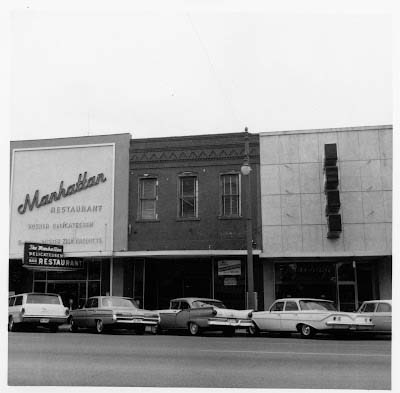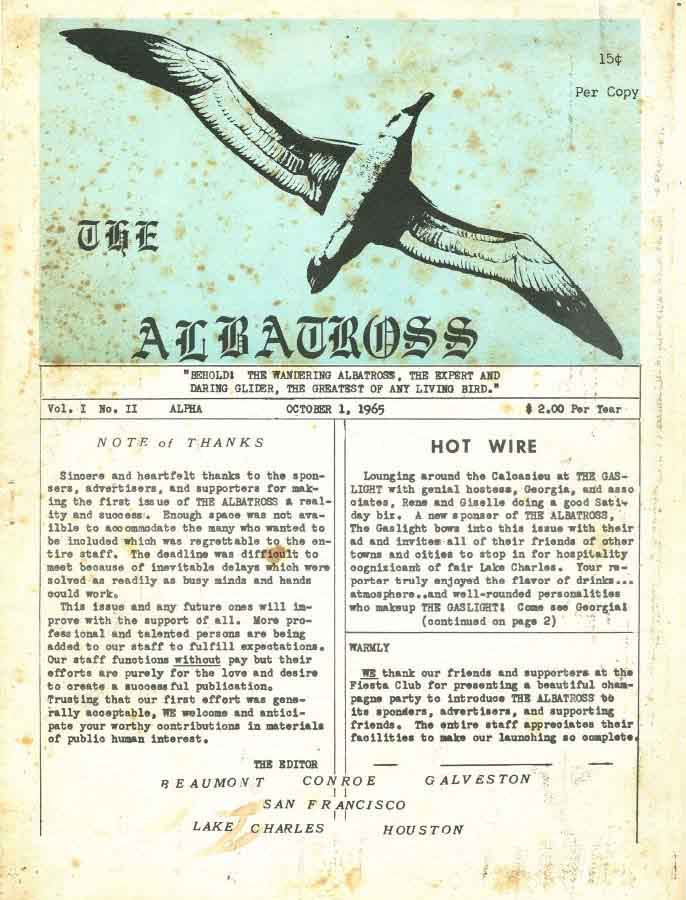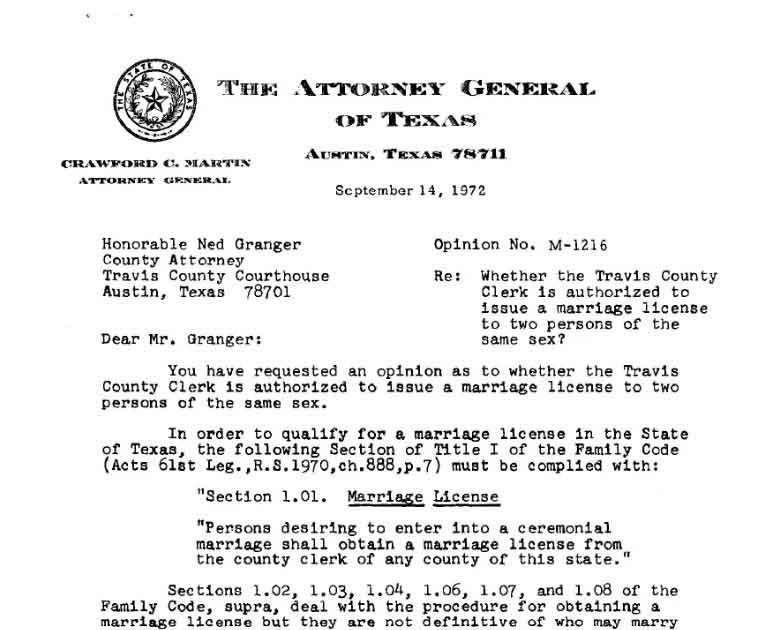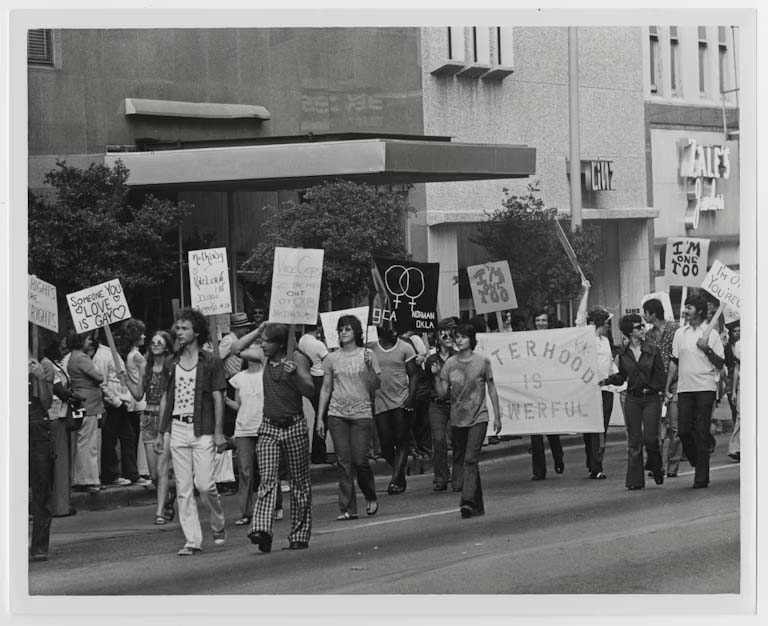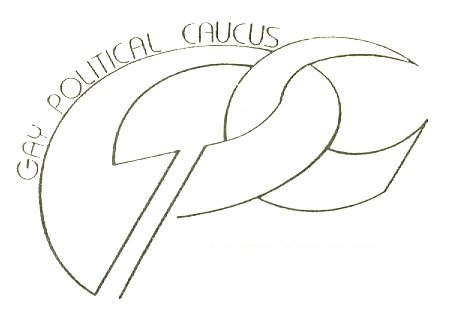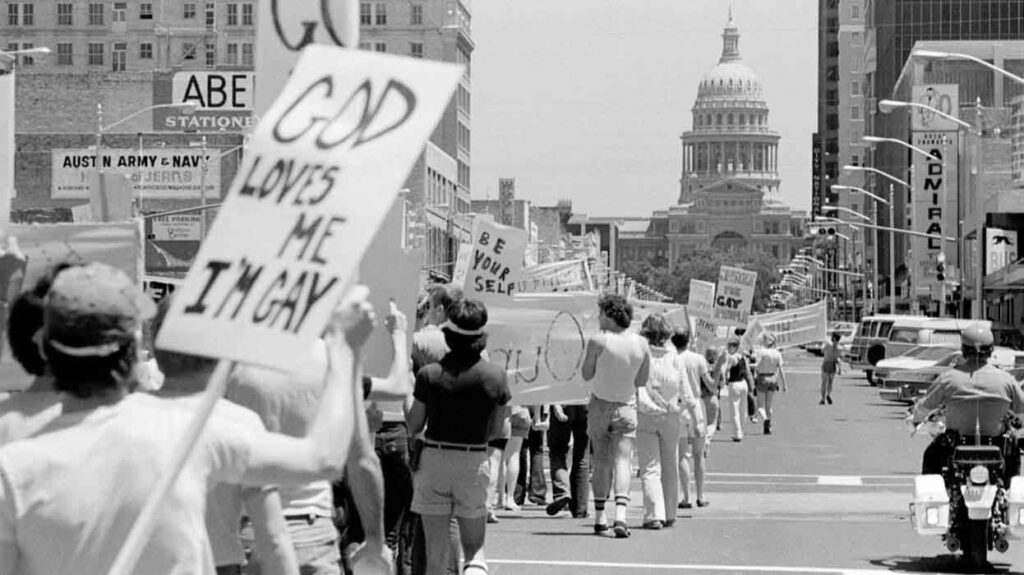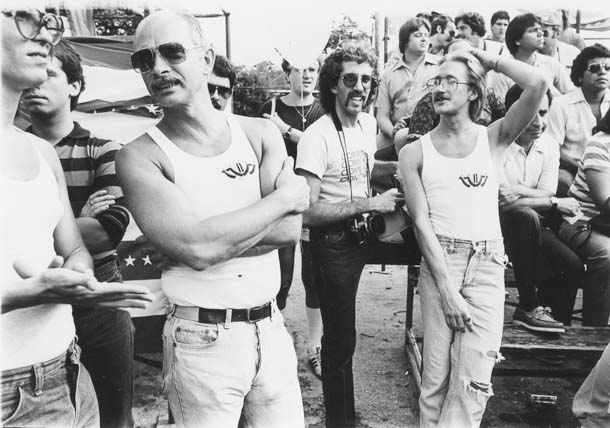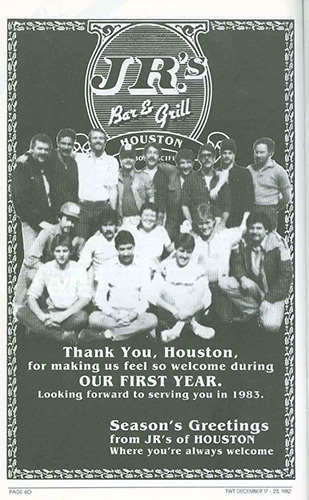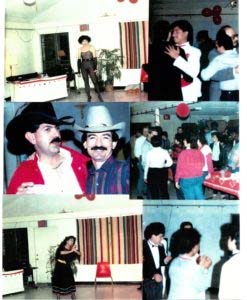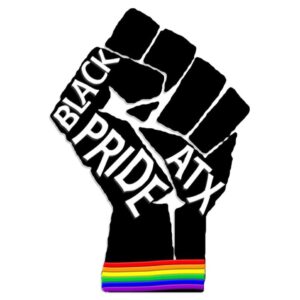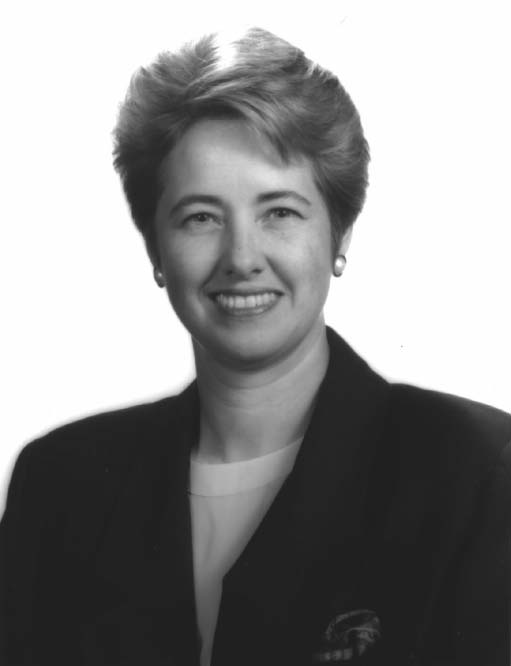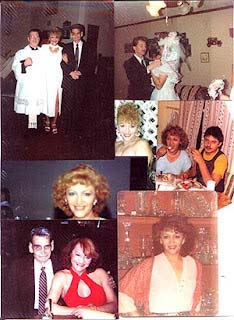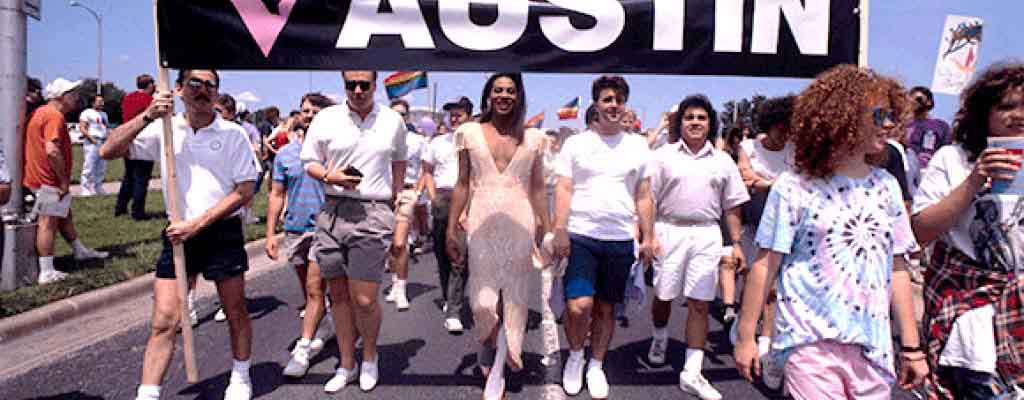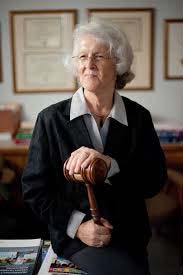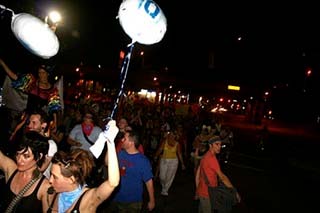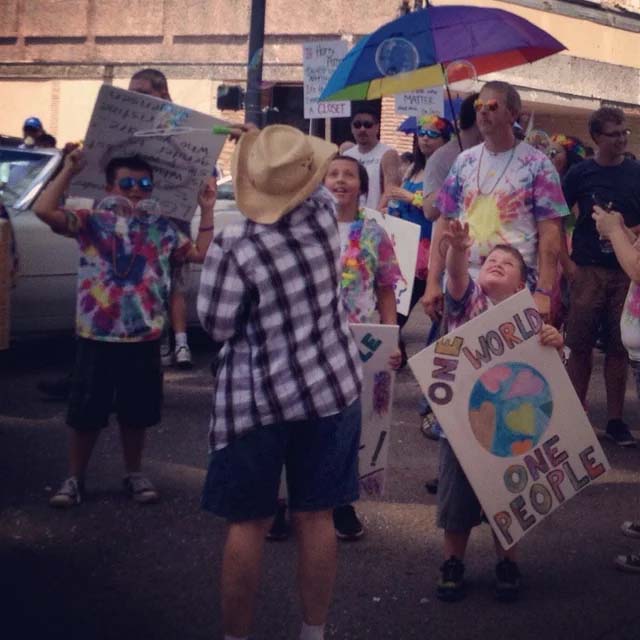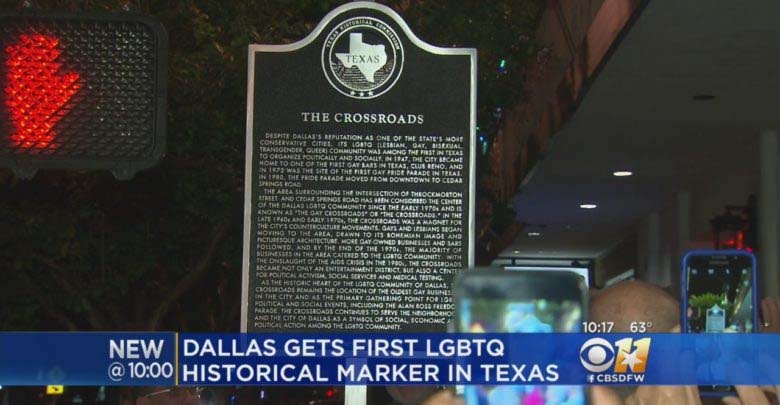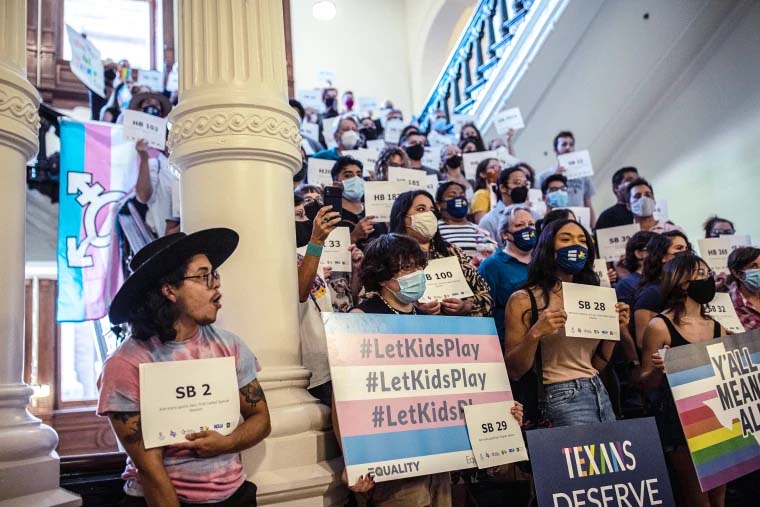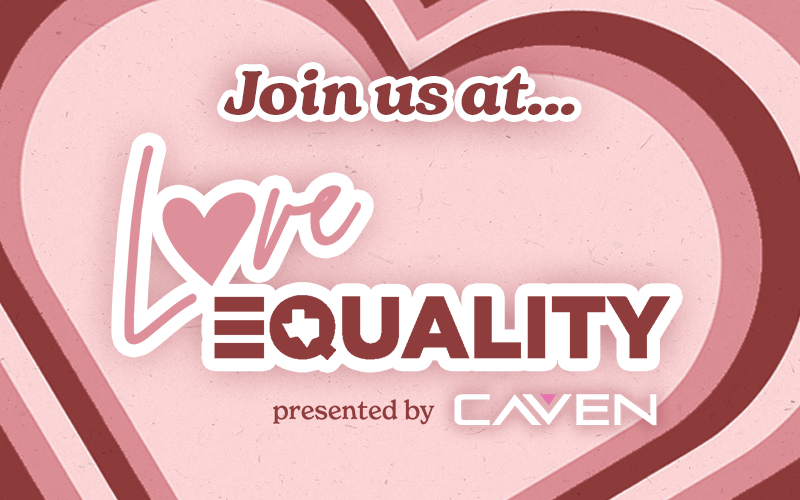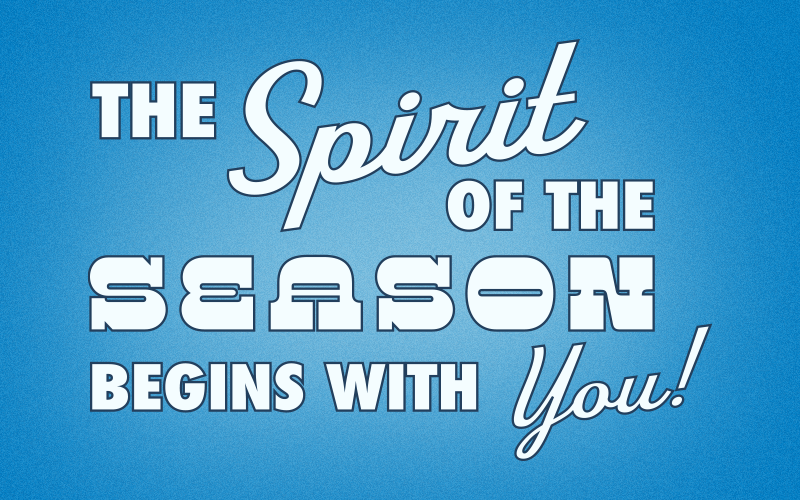Queer Texas History
The Texas LGBTQIA+ community has a rich, cultural history.
There is an immense amount of history before the 20th century, but it was seldom documented. As such, this timeline begins at the start of the 20th century.
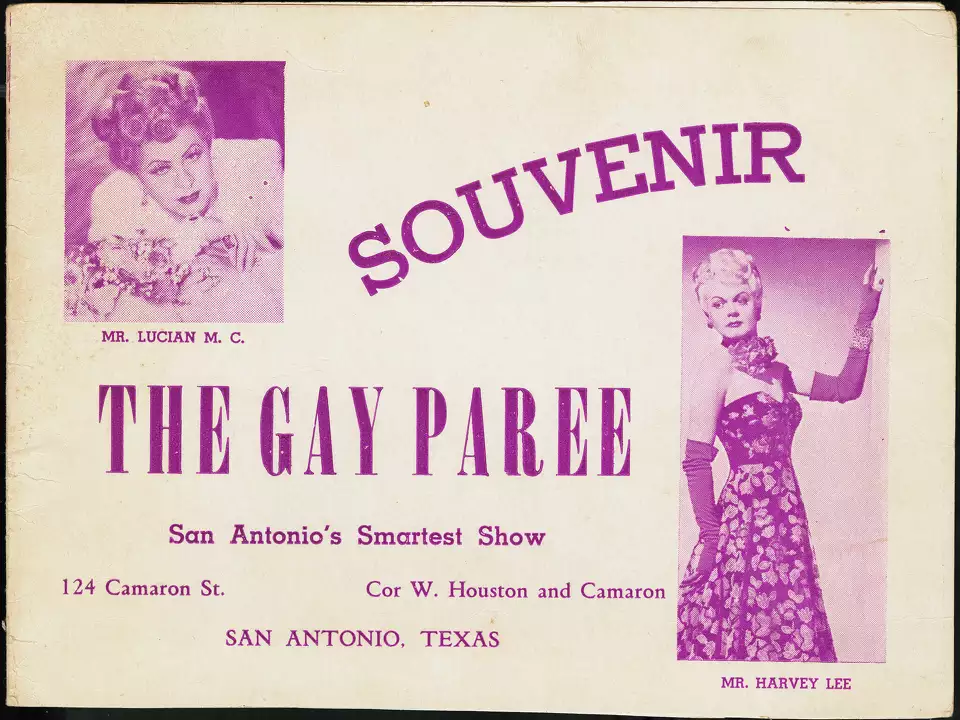
The prohibition of alcohol brought crowds to the clubs where drag artists performed.
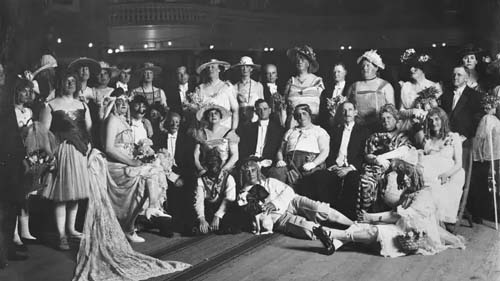
Drag shows were driven underground. Queer clubs moved out of San Antonio's theater district to the outside of the city.

Rita “Papa Bear” Wantstrom opened The Roaring Sixties and founded the Tumblebugs to raise legal aid funds for women arrested for wearing pants. At the time, it was illegal for women to wear fly-front pants.
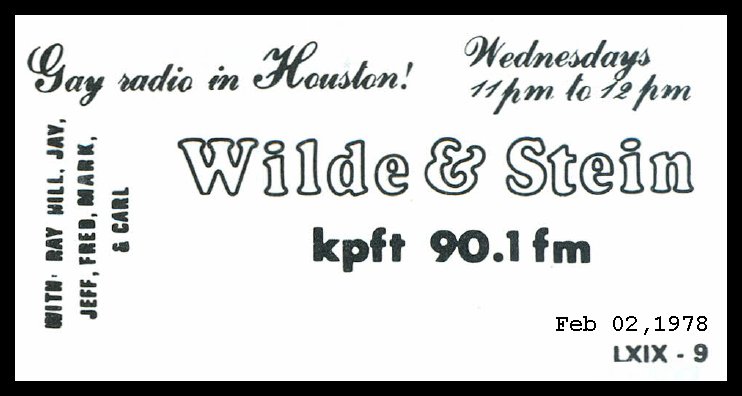
KPFT aired Queer Voices and After Hours, which still runs today.
The Rag, an underground political newspaper, published “Pink Power!” advocating for the “liberation of homosexuals.” The pamphlet was authored by openly gay people.
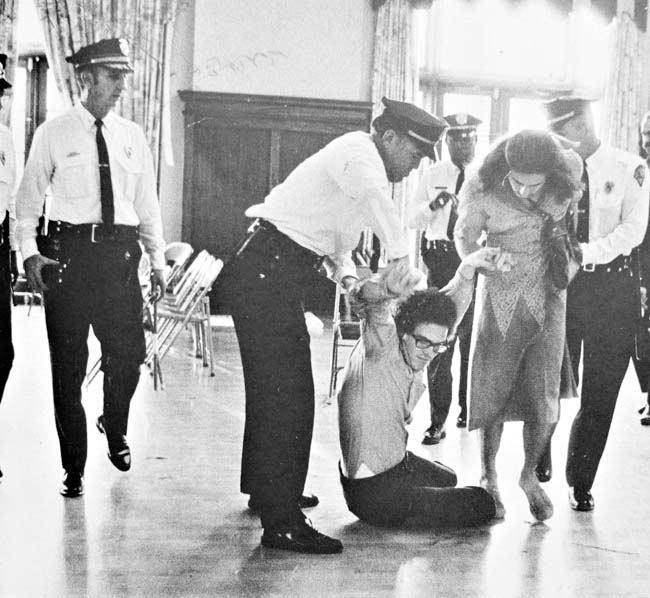
After being denied a charter by the University of Texas, students went through the appeals process which delayed the official launch by 3 years. In 1974, UT agreed to recognize the group in a settlement.
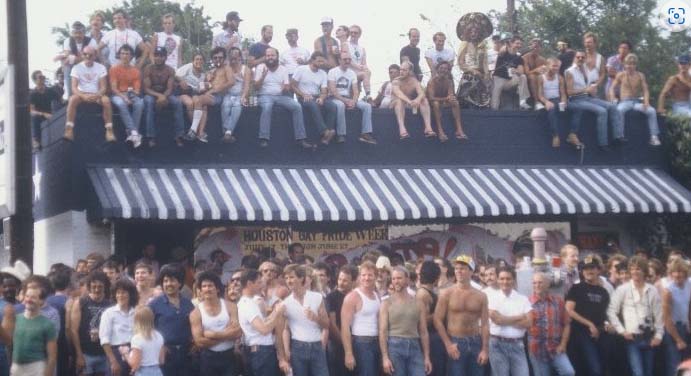
Houston gay bar, “Mary’s, Naturally,” opened, and remained active until 2009.
Criticizing the Gay Liberation Front for “anti-feminist views,” the Gay Women’s Liberation group was founded.
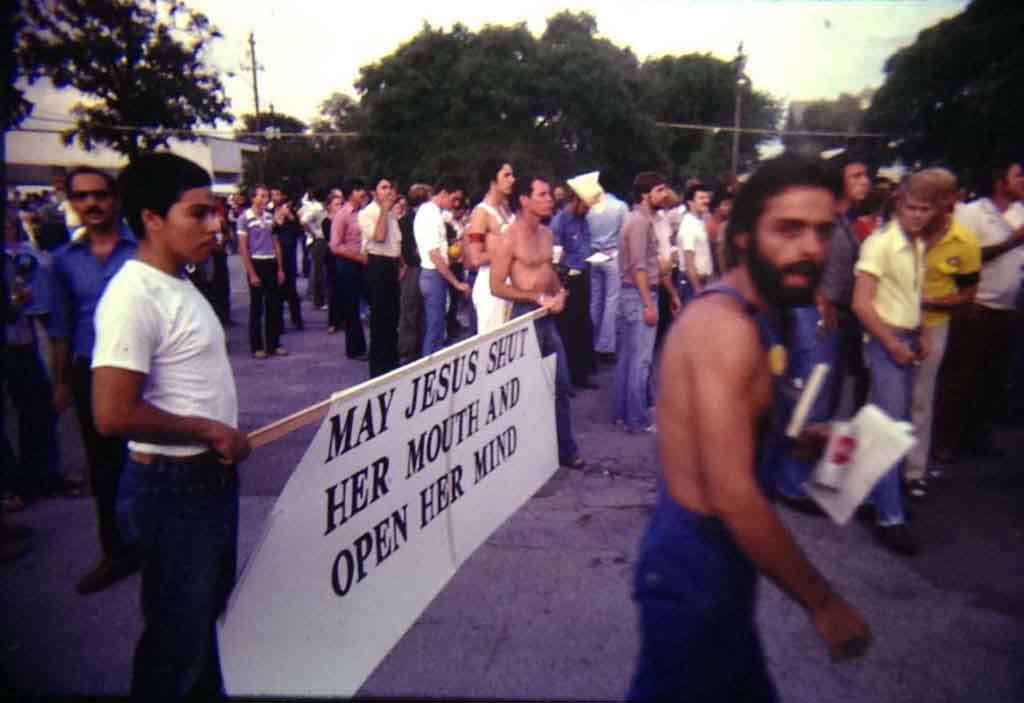
Over 10,000 people protested Anita Bryant’s performance in Houston. This march catalyzed the queer rights movement in Texas.
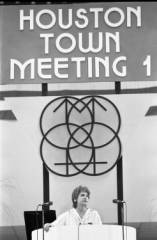
Following Houston’s first week-long pride celebration, community members convened in the Astro Arena for Town Meeting One, which was also the catalyst for the creation of the Montrose Sports Association, Gay and Lesbian Switchboard, Montrose Patrol, the Gay Chicano Caucus, Montrose Clinic, and Montrose Counseling Center.
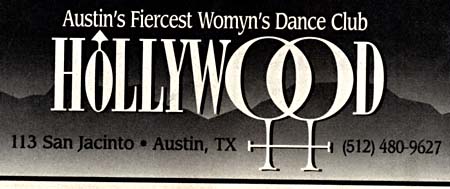
The Hollywood opened in Austin, celebrating “the renaissance of lesbian life.”
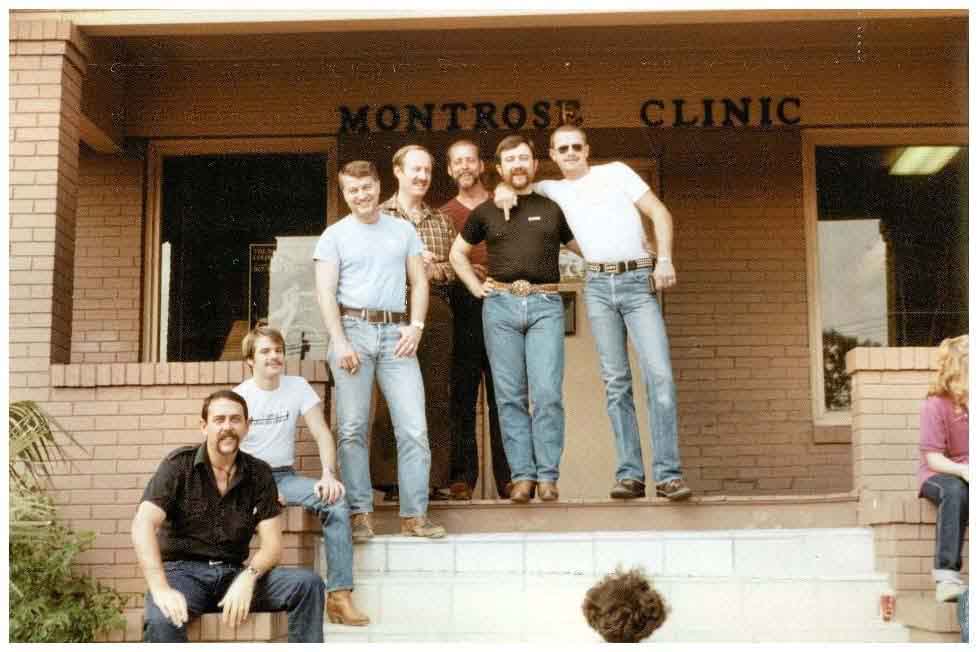
Amid the HIV/AIDS crisis and in the wake of Town Meeting One, the Montrose Clinic was established to address the unique health needs of Houston’s gay and lesbian community.
In Gay Student Services v. Texas A&M University, the Fifth Circuit Court of Appeals ruled that under the first amendment public universities were required to recognize gay student groups. That ruling was a culmination of a 6-year legal battle.
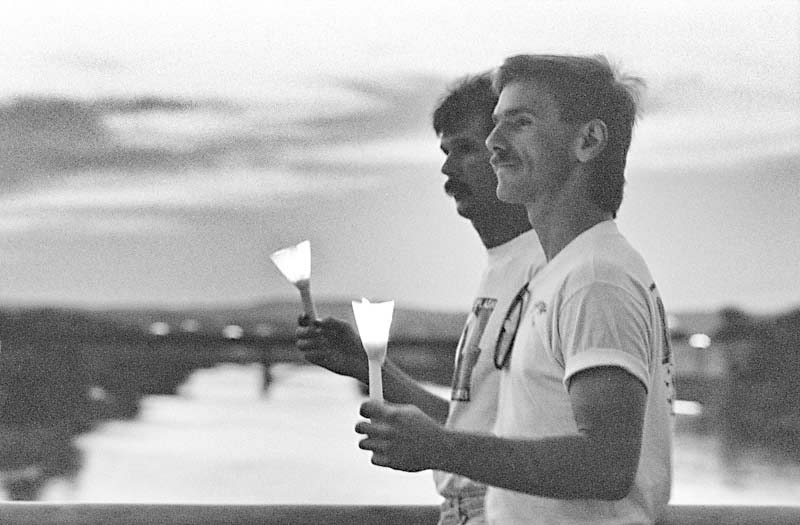
After a strenuous legislative session, the Austin LGBTQIA+ community marched on the Capitol, demanding the repeal of the Sodomy Law and protections for those living with HIV/AIDS.
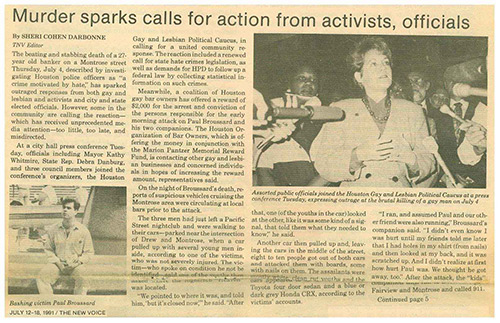
Houston City Council passes a resolution calling for state-level hate crime legislation. Houston Police Department expands definition of hate crimes to include targeting based on sexual orientation.
Dallas pride renamed Alan Ross Texas Freedom Parade to honor the former executive director of the Dallas Tavern Guild.
The James Byrd Jr. Hate Crimes Act increased penalties for crimes motivated by a person’s race, color, disability, religion, national origin or ancestry, age, gender or sexual preference.
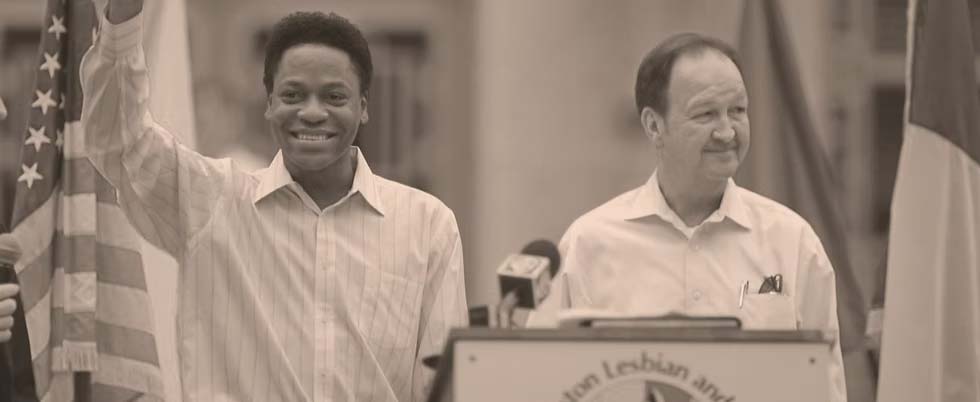
Landmark decision by the Supreme Court of the United States in Lawrence v. Texas nullified all remaining sodomy bans in the United States.
Texas voters approved a constitutional amendment defining marriage as “the union of one man and one woman.”
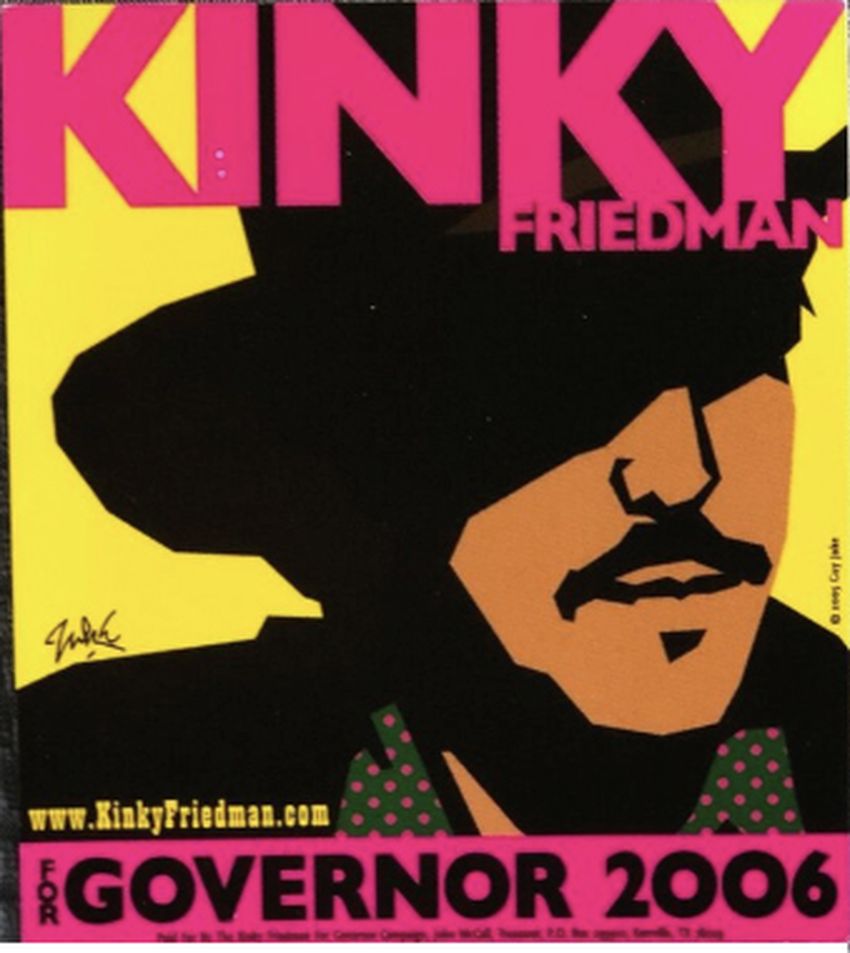
Kinky Friedman becomes first candidate for Texas governor to support same-sex marriage. “I support gay marriage because I believe they have the right to be just as miserable as the rest of us.”
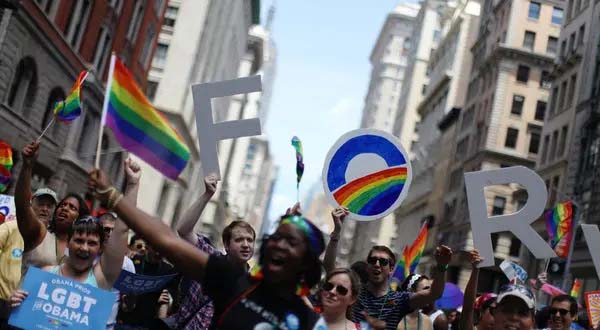
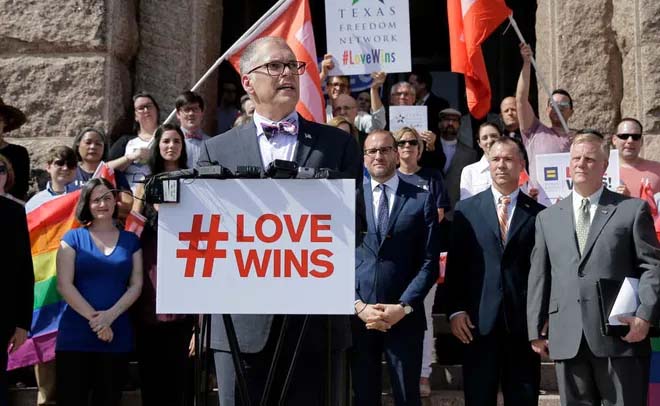
Supreme Court of the United States legalized same-sex marriage. Two thousand five hundred same-sex marriage licenses were issued in Texas that year.
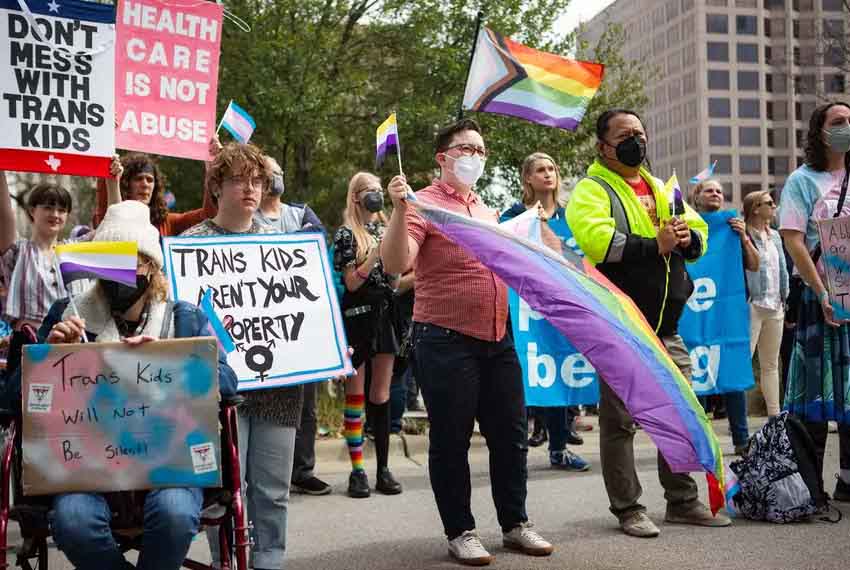
In February, Greg Abbott instructed the Department of Family and Protective Services (DFPS) to investigate families with transgender children. In May, the Texas Supreme Court ruled that the governor did not have the authority to rewrite the DFPS mandate.
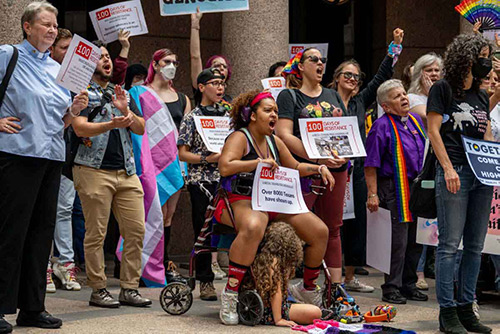
Texas Legislature passed bills that banned drag shows, banned health care for trans youth, prevented trans college students from participating in team sports, ended DEI at Texas public universities, allowed for chaplains to act as school counselors, and implemented a book rating system that censored queer themes.

In August of 2024 the Texas Department of Public Safety stopped allowing gender marker updates on drivers’ licenses.
